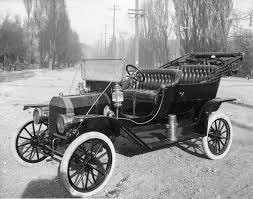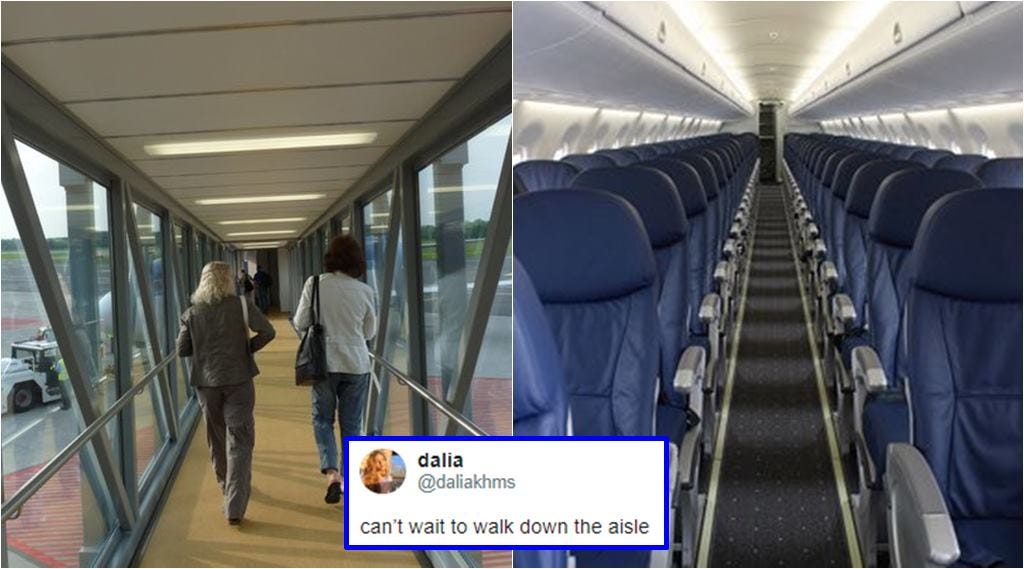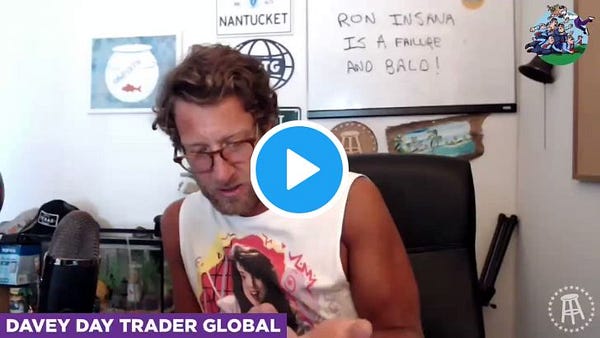COVID-19 has blessed us with incredible tales in the business world. Many have detailed despair while others have chronicled resilience to give us hope that things will pick up again. What I have also kept an eye on are the truly bizarre ones. The circumstances that lead to such bizarre outcomes can be instructive. For example, my post on Luckin Coffee spoke about the price paid due to weak governance systems and ‘growth at all costs’ mindset.
Today, I want to dive into another fascinating tale of a bankrupt company, its booming stock price, new millennial traders and their YOLO investment philosophy. So bizarre is the tale a Vanity Fair piece covering it ran a headline that screamed, “This Is Just F--king Unbelievable!”.
By the way, if you are enjoying these newsletters, please share it with others.
Let’s get to it!
In 1918, at 22 years of age, an ambitious entrepreneur set up a shop around Chicago. His idea?

Renting out that beautiful Model T for short durations. Starting out with an inventory of 12 Model Ts, the company expanded to become what is today known as the Hertz Corporation - a behemoth once counted among the Fortune 500 and a leading global car rental player.
How do car rentals companies work?
A simple version is that they take on debt from institutions or individuals (from the bond market) which carries a certain fixed promised interest payment. This is used to buy cars. Ideally, strong companies can raise debt at lower rates of interest than individuals. Thus the cost of ownership for a car (using debt) for such companies should be lower than the cost for an individual. With the advantage of a dramatically lower cost of ‘asset’, these vehicles are then rented out.
The crux of the business model is to ensure that cars have high-utilization (cars are rented often enough or for longer durations) to cover the cost of debt and operation and marketing costs.
The last decade has been brutal to the business. While these companies were recovering from the recession of 2008, the rise of on-demand cab services such as Uber caused a permanent decrease in demand for the self-drive rental options. This drop has been compounded by increasingly fewer people, especially the young, getting their driving permits.
One of the biggest sources of remaining demand was the airport. People, typically business flyers or holidayers, would land at an airport, hire these cars and drive to their destinations.
If you have been following this newsletter for a while you know what comes next.
COVID-19 hit and air travel collapsed.

The car rental companies were driven to the ground. Hertz was especially vulnerable given its high debt obligations ($19 billion) and a now idle inventory of 700,000 cars.
Seeing no way out, it filed for Chapter 11 bankruptcy.
What happens in Chapter 11 bankruptcy?
Chapter 11 is a form of bankruptcy that involves a reorganization of a debtor's business affairs, debts, and assets, and for that reason is known as "reorganization" bankruptcy. Named after the U.S. bankruptcy code 11, corporations generally file Chapter 11 if they require time to restructure their debt. During a Chapter 11 proceeding, the court will help a business restructure its debts and obligations. In most cases, the firm remains open and operating.
Under Chapter 11, either the lenders take a haircut (forgive some debt) and finalize a new debt payment plan or if no agreement can be reached, then the companies assets (land, building, IP, etc.) are liquidated (sold) and lenders are paid back to the extent possible. The claims of lenders are always met before there is any payment made to the equity (share) holders. In fact, equity holders getting anything from the liquidation process after the claims of the lenders have been met is rare.
Common equity holders own the stocks that are typically traded on the stock exchange. In the liquidation process, they are at the bottom of the pecking order. When a company files for bankruptcy, the stock price of the company usually dives to zero. After all, if the operations are wound up and assets liquidated and the stockholders are bound to receive nothing, why hold the stock at all? There is no intrinsic value left and the share price reflects that.
Hertz filed for bankruptcy on 22nd May, expectedly the shares tanked. The stock went to $0.56 per share, down from $20.29 just a few months prior.
And then things turned weird.
Enter Dave Portnoy
David Portnoy is the brash founder of a sports media empire - Barstool Sports. He has built a dedicated following for his brand of loud theatrics. As sports betting stopped due to COVID-19, Portnoy has taken to trading and amping up the stocks that he invests in on his social media platforms. Many who turn to him for sports have followed suit. Here a great video summarizing his trading escapades.
He and his legion of followers turned to the Hertz stock. The price rose from $0.56 on May 26 to $5.53 on June 8 because of the hysteria caused by him and investors mimicking his investments. The chart below shows the share price (notice the steep fall to almost zero and the sudden rise after) and the number of Robinhood traders holding the stock.

The rise of Robinhood day traders
Founded in 2013 by two friends - Vladimir Tenev and Baiju Bhatt, who met at Stanford, Robinhood allows users to trade in stocks and equities (among other assets) at zero fees. While sounding mundane, it has revolutionized the industry. Existing brokerages have all had to cut their fees in response to Robinhood. Along the way, it had also racked up over 10 million users by the beginning of 2020.
Built for the mobile-first millennials, trading on the app has been described as a ‘game’. Its mobile user base is greater than the mobile users of all other brokerage apps combined. Unlike Hertz, COVID-19 has been a propeller for Robinhood's business. 3 million new accounts were opened on Robinhood in the last few months as people got more conscious about investments and savings.
“Once everything crashed, I thought maybe this is a good time to get into it,” says Ivan Jackson, who will be a senior at James Madison University in Harrisonburg, Va.
Bored at home during the lockdown, he says, he logged into a Robinhood account he had set up previously but had barely used. So far, he has invested about $3,000, and made $775, a 26% return.
Much of that gain came from an investment in an electric truck company, Nikola, that he learned about from a source rarely cited in Wall Street analyst research.
“A buddy of mine sent me a TikTok,” he says, referring to the social-media site known for spreading new songs and dance moves. “He was like, ‘Look at this thing.’

The lockdown, rise of social media influencers, meme fueled #YOLO mindset, and gamified app design funded by Silicon Valley heavyweights created the perfect storm. The US government mailed stimulus checks worth $1,200 to all individuals earning under $75,000 in March and April. A large portion of that has been funnelled into the stock market by millennials. Combine all the factors above and we end up with a bankrupt’s company share price rising stratospherically.
And then it gets weirder
In a move that can only be described as chutzpah, Hertz announced plans to raise $500 million by issuing fresh shares to investors.
Everyone’s reaction:

A company whose fair value was probably negative was going to issue new shares to retail investors hoping to cash in on the truly inexplicable bubble its shares were going through. It would use this fresh equity to settle the claims of its lenders. Classic robbing Peter to pay Paul.
In a turn of events that would seem too far fetched even an episode of Billions, Hertz issued the following warning in its prospectus
We are in the process of a reorganization under chapter 11 of title 11, or Chapter 11, of the United States Code, or Bankruptcy Code, which has caused and may continue to cause our common stock to decrease in value, or may render our common stock worthless
Typically when a company issues stock, it sells itself to potential investors by highlighting the positive and the strong future that beholds the company. Here was a company warning potential investors that its stock would most likely be worthless i.e. invest in us and end up with a junk piece of paper. As this investor put it on Twitter.

The stock market regulators eventually stepped in and this bizzaro offering was pulled a couple of days ago.
The Robinhood traders are still at it.


Yes, he is pulling letters from a scrabble bag to determine which stock to invest in.
It is all ridiculous fun and games until it is not.
In other news
A round-up of interesting things I came across this week.
COVID-19 has thrown objects that we commonly touch into sharp focus. Here is a short delightful history of one such object - door handles. They are underdesigned today compared to the flourishes that were witnessed in the 18th and 19th century.
Considered to be a COVID-19 casualty, AirBnB is instead witnessing a massive surge in bookings. Turns out those long-planned vacations are being replaced by impulsive road trips.
Internet is dramatically changing the lives of the world’s poorest for the better. Even those without smartphones.
Turns out, TV did not kill radio advertising. A deeper analysis might show that the internet is probably not responsible for falling newspaper advertisements.

I need your help.
What are some of the other topics that you would like me to cover? Shoot me a message!
The newsletter takes time and effort to put together. If you like it, please share it with others, tweet about it and send me feedback at romitnewsletter@gmail.com. It keeps me going. Stay safe!





